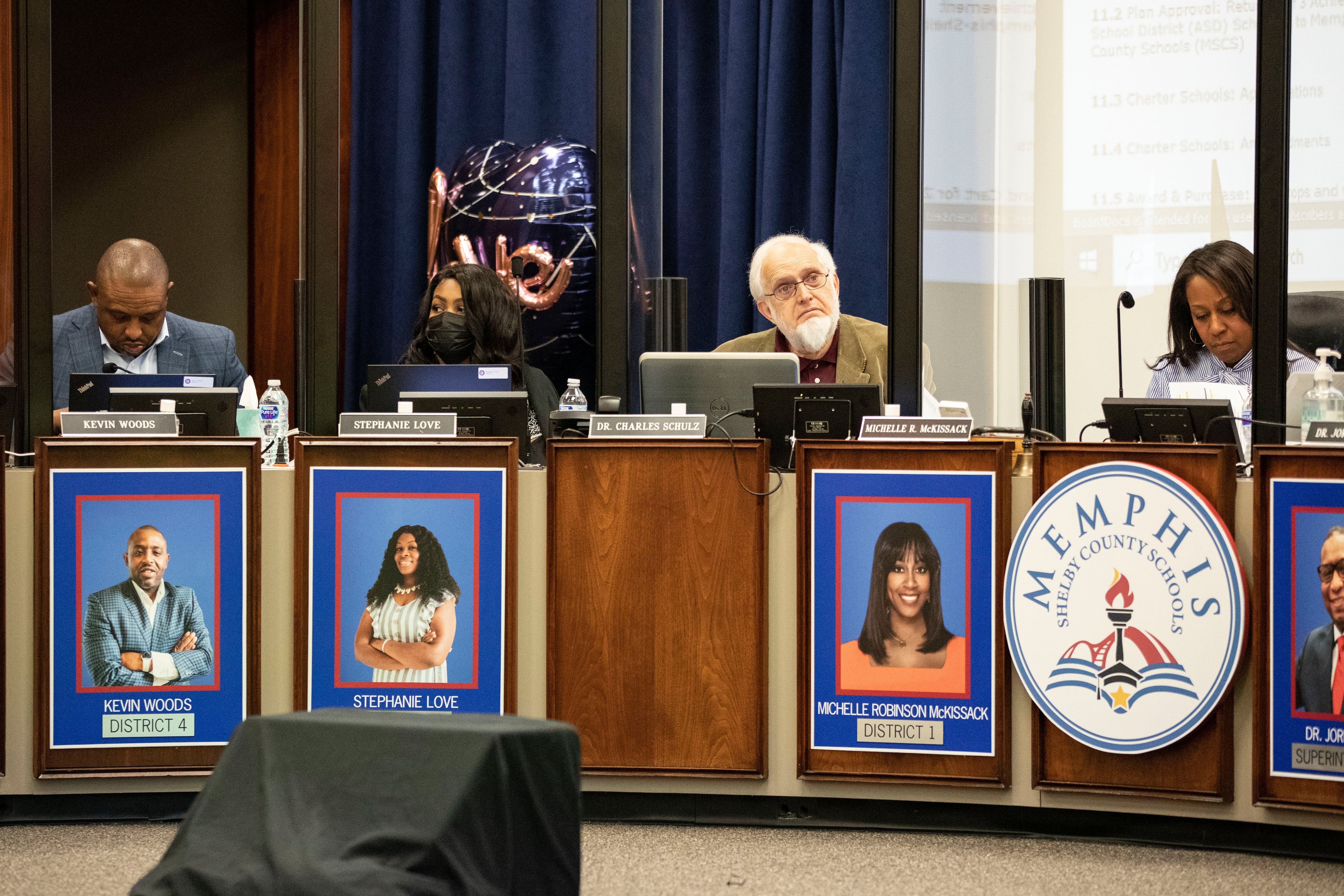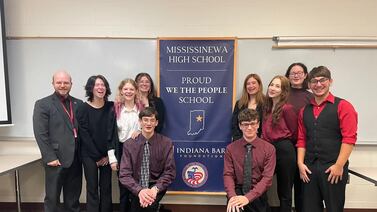The decade-old dispute between Memphis-Shelby County Schools and the Germantown Municipal School District ended Thursday as the two districts’ school boards signed off on a deal that allows Germantown to take over two schools currently operated by MSCS.
The resolution, spurred by a new state law, means that thousands of MSCS students who attend the Germantown Elementary, Middle and High schools — known collectively as the “three G’s” — will be able to remain in those schools as the buildings begin a transition to the Germantown district’s control.
Under the agreement, Germantown will pay MSCS $5 million for Germantown Elementary and Middle schools, which are both located in the Memphis suburb but have been operated by MSCS since 2013. The agreement also calls for Germantown to help MSCS sell the high school building, and for Shelby County to contribute $77.5 million to a replacement high school in the Cordova area, MSCS’ first new district-operated high school in over a decade.
The pact allows a transition period of up to nine years for affected students and staff.
The agreement passed the MSCS board 7-0. Board members Michelle McKissack and Sheleah Harris were absent. On the Germantown school board, the vote was 4-0. Board member Ryan Strain recused himself because his employer, Baker Donelson, works with MSCS.
Germantown city leaders and Shelby County commissioners backed the agreement in votes earlier this week. The culminating votes came just over two weeks before the end-of-year deadline to reach a settlement over surrendering control of the three G’s and Millington’s Lucy Elementary to their respective local school districts.
The deadline was part of a new state law passed this year that says a county school district can’t operate a school within the geographic boundaries of a municipal school system, unless they’ve negotiated an agreement.
In a statement to Chalkbeat, MSCS board Chair Althea Greene said she is grateful for the collaboration that led to the agreement, which was the result of mediation efforts led by Shelby County Mayor Lee Harris.
“This collaborative effort is evidence that when we come together, everyone wins,” Greene said. “This is the first of many opportunities for us to collectively ensure that we continue to put students first.”
Germantown school board Vice Chair Amy Eoff called the pact “a step in the right direction” for students attending the three G’s, citing the nine-year transition plan that prevents current students from being displaced abruptly.
“The fact that it avoids litigation is good … . I’m as comfortable as I’m going to be with this agreement,” Eoff said.
But for Memphis City Council member Martavius Jones, it was tough to ignore the weight of the history that led to the pact. Jones was on the Memphis City School Board in 2013 when Germantown and five other Memphis suburbs formed their own school districts to avoid being grouped into the combined Memphis-Shelby County district.
A 2013 federal settlement allowed MSCS to keep control of the three G’s at the time, but Germantown continued trying to obtain them, even though most of the students attending the Germantown schools live outside of the suburb.
This year, two Republican state lawmakers, Rep. Mark White of Memphis and Sen. Brian Kelsey of Germantown, sponsored the legislation that put the future of the three G’s and their students — most of whom are Black, and a third of whom are considered economically disadvantaged — in doubt again. That rankled Jones, who believes that it violates the 2013 agreement.
Accepting the new settlement “sends a bad message to Nashville that we’re not going to fight this,” said Jones, who urged the Shelby County Commission to reject the pact.
“It also is another example of members of the Shelby County delegation (in the legislature) actively working against what’s in the best interest of Memphis,” he said.
State Sen. Raumesh Akbari, a Memphis Democrat who serves as second vice chair of the Senate Education Committee, criticized the law as an example of the state legislature meddling in a local dispute.
However, Akbari said, the current pact is the best possible outcome.
“I know that the only way Memphis-Shelby County Schools would be whole is if they got a new high school,” Akbari said. “The fact that’s happening is a big deal, and the ramp up time will help the students stay together.”
The fate of Millington’s Lucy Elementary remained uncertain as of Thursday, as negotiations between the two districts continue. MSCS officials have said Millington plans to use Lucy Elementary as a school and have expressed hopes for “an equally positive outcome” for the 350 affected students.
MSCS teachers get new labor agreement — 4 years after the last one expired
Separately, the MSCS board endorsed a labor agreement with educators that has been stuck in negotiations for three years.
The 6-0 vote — McKissack and Harris were absent, and board member Keith Williams, a leader of one of the district’s two teachers unions, abstained — comes after the district rejected the other union’s attempt to start the bargaining process from scratch.
MSCS teachers have been without a labor agreement with the district since 2018, when the last one expired. The district’s two teachers unions last went to the bargaining table in 2019, but did not settle on a new contract with the district.
The larger of the unions, the Memphis-Shelby County Education Association, which Williams leads, had urged the board to support terms of an agreement that emerged from those negotiations.
But members of the United Education Association have argued that they didn’t have enough seats at the table during the last round of negotiations, and contend that an entirely new contract is needed to address rising health care costs, stagnant salaries, and large class sizes.
In October, UEA presented the school board with a petition that would force the district back into negotiations.
Last week, the district announced it could not verify the number of signatures on the petition because of discrepancies that included duplicate and ineligible signatures and rejected the UEA effort to restart negotiations.
Samantha West is a reporter for Chalkbeat Tennessee, where she covers K-12 education in Memphis. Connect with Samantha at swest@chalkbeat.org.
Bureau Chief Tonyaa Weathersbee oversees Chalkbeat Tennessee’s education coverage. Contact her at tweathersbee@chalkbeat.org.








